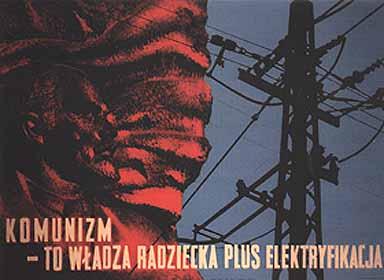poland_
20 Apr 2011 / #61
I am not sure that is correct:
It is quite an interesting point, Communism or socialism. Socialism is the path to communism (final stage). All of the Poles I know always refer to the period as ' under socialism' now this could be a denial of a ' communist past '
here is some info:
Socialism is an economic and political theory advocating public or common ownership and cooperative management of the means of production and allocation of resources.A socialist society is organized on the basis of relatively equal power-relations, self-management, dispersed decision-making (adhocracy) and a reduction or elimination of hierarchical and bureaucratic forms of administration and governance, the extent of which varies in different types of socialism.This ranges from the establishment of cooperative management structures to the abolition of all hierarchical structures in favor of free association.
As an economic system, socialism is the direct allocation of capital goods (means of production) to meet economic demands so that production is oriented toward use and accounting is based on some physical magnitude, such as physical quantities or a direct measure of labour time. Goods and services for consumption are distributed through markets, and distribution of income is based on the principle of individual merit/individual contribution.
As a political movement, socialism includes a diverse array of political philosophies, ranging from reformism to revolutionary socialism. Some currents of socialism, often referred to as state socialism, advocate complete nationalisation of the means of production, distribution and exchange as a strategy for implementing socialism; while social democrats advocate public control of capital within the framework of a market economy. Libertarian socialists and anarchists reject using the state to build socialism, arguing that socialism will, and must, arise spontaneously. They advocate direct worker-ownership of the means of production alternatively through independent syndicates, workplace democracies, or worker cooperatives.
Modern socialism originated from an 18th-century intellectual and working class political movement that criticised the effects of industrialisation and private property on society. Utopian socialists such as Robert Owen (1771–1858), tried to found self-sustaining communes by secession from a capitalist society. Henri de Saint Simon (1760–1825), who coined the term socialisme, advocated technocracy and industrial planning.[9] Saint-Simon, Friedrich Engels and Karl Marx advocated the creation of a society that allows for the widespread application of modern technology to rationalise economic activity by eliminating the anarchy of capitalist production that results in instability and cyclical crises of overproduction.Socialists inspired by the Soviet model of economic development, such as Marxist-Leninists, have advocated the creation of centrally planned economies directed by a single-party state that owns the means of production
SeanBM, I found these two articles quite interesting about the topic of discussion.
fff.org/freedom/0290a.asp
socialismtoday.org/63/solidarnosc.html
 PolishForums LIVE / Archives [3]
PolishForums LIVE / Archives [3]
